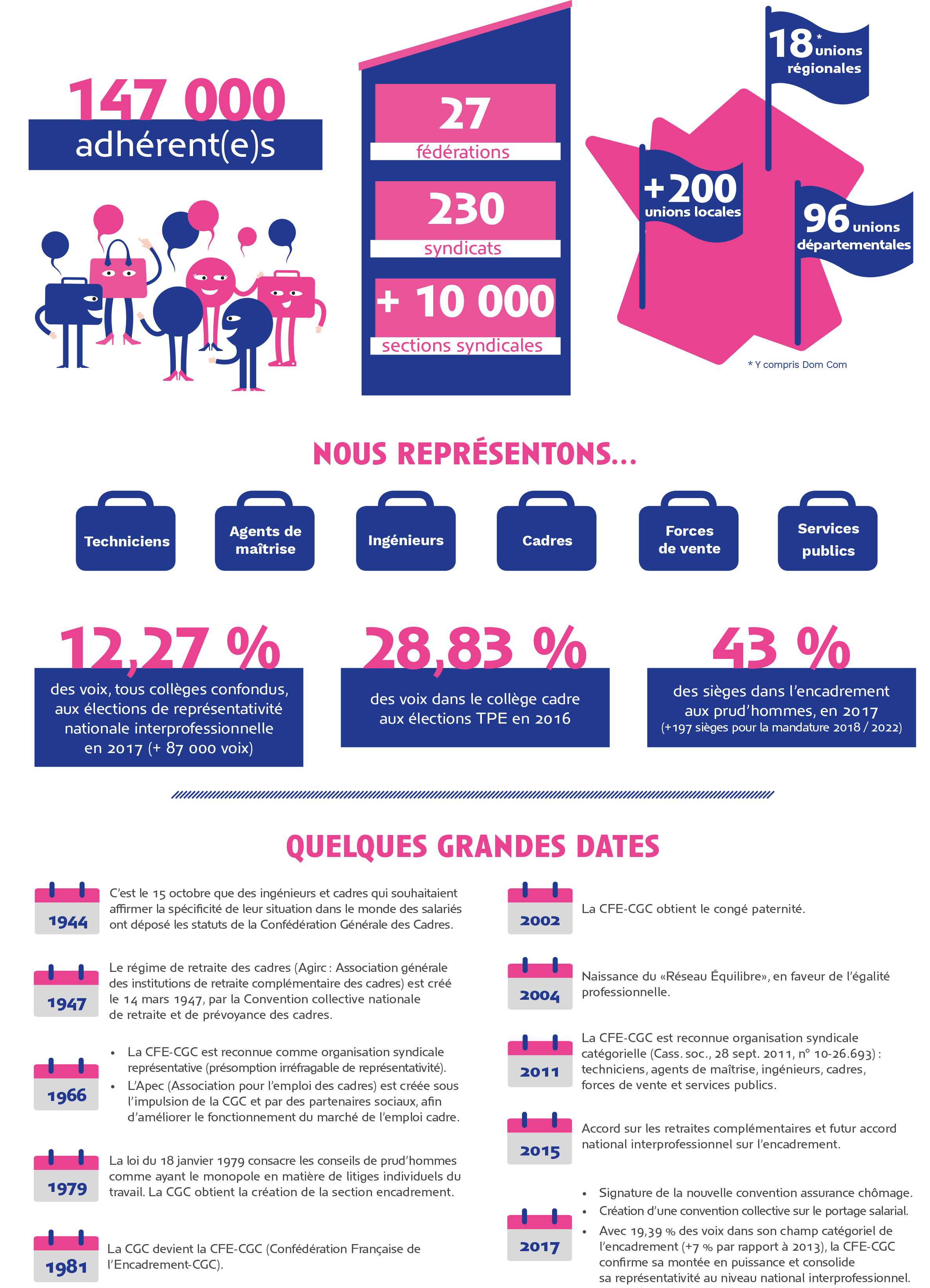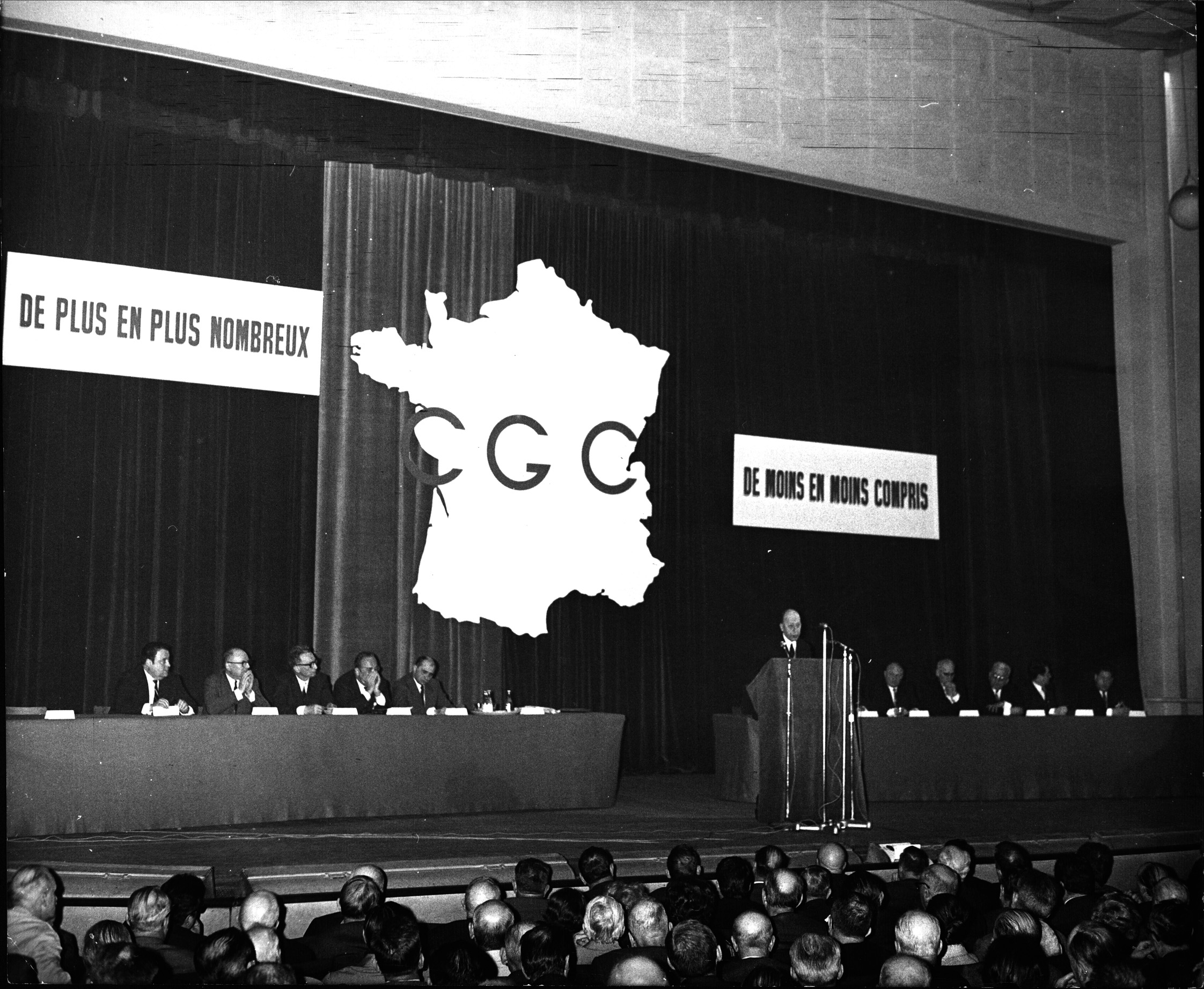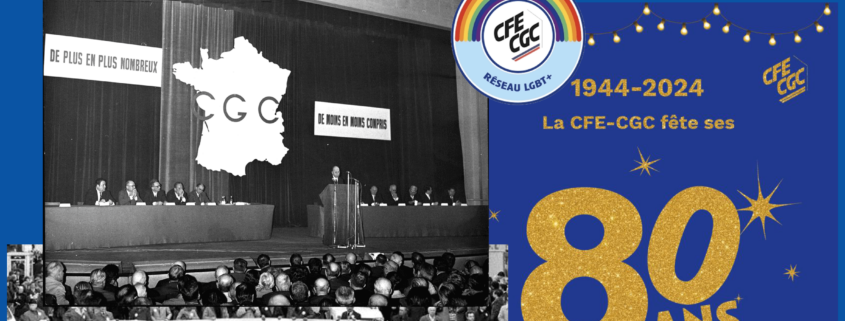CFE-CGC: Celebrating eight decades of advocacy for France’s leaders as part of CEC European Managers
Today marks the 80th anniversary of our member organisation in France, the Confédération Française de l’Encadrement – Confédération Générale des Cadres (CFE-CGC).

This French labour union is a fundamental pillar of our European Confederation, and it has been at the forefront of advocating for France’s leaders, managers, and executives.
CFE-CGC has a membership of nearly 150,000 professionals from a range of sectors including engineering, healthcare, finance, and technology.
Since its founding in 1944, CFE-CGC has stood as a unique representative voice within France’s trade union movement, promoting the rights and interests of highly skilled professionals in a rapidly evolving workforce.
CFE-CGC: The birth
Confédération Française de l’Encadrement (CFE-CGC) was founded in the aftermath of World War II, during reconstruction and profound social change in France.

Established on October 15, 1944, CFE-CGC’s mission was to provide a voice specifically tailored to the needs of managers and professionals.
The union sought to distinguish itself from traditional labour unions by focusing on middle and upper-level employees, individuals whose concerns were often overlooked by other workers’ organizations.
Right from its inception, CFE-CGC sought to represent managers and professionals who held a unique role in French society.
The organisation’s foundation recognized the need for a union to support these workers, who were caught between labour and management and had distinct concerns, responsibilities, and perspectives.

A growing influence
The post-war era saw rapid industrial growth in France, creating a burgeoning middle class that the CFE-CGC was uniquely positioned to support.
The union gained influence throughout the 1950s and 1960s, advocating for improved labour conditions, salaries, and benefits for professionals and executives.
CFE-CGC championed causes such as fair wage scales, social protection, and access to professional training.
In 1966, our French colleagues achieved a significant victory with the recognition of the “Statut Cadre,” a formal classification that granted specific rights and protections to managerial employees.
This classification helped to solidify the unique place of managers and professionals within French labour law and further positioned CFE-CGC as a key player in the labour movement.
The 1970s brought about a shift in labour dynamics with economic turbulence and an evolving technological landscape.
CFE-CGC responded by expanding its focus and advocating for better working conditions and quality-of-life issues, like work-life balance and job security, which were becoming more pertinent to its members.
This era also saw the union engaging in social debates around corporate responsibility and ethical business practices.
The economic changes of the 1980s, including rising unemployment and inflation, posed new challenges for CFE-CGC.
In response, the union intensified its efforts to protect its members from job insecurity, advocating for policies that supported professional training and adaptation to new technologies.
This period underscored the need for the union to protect current positions and prepare workers for future jobs.
In the 1990s, CFE-CGC continued to expand its influence within the broader labour movement.
It was crucial in shaping national discussions on pensions, healthcare reform, and unemployment insurance.
The union’s advocacy was instrumental in securing improved social protections for professionals and in paving the way for better technology integration in the workplace.
As the 21st century began, CFE-CGC adapted to the dual challenges of globalization and technological change. The union recognized that new issues—such as telecommuting, digital privacy, and automation—would profoundly impact the professional landscape.
In response, CFE-CGC advocated for policies that embraced these changes while protecting its members from potential downsides.
The organisation focused on ensuring that technology served as a tool for professional growth rather than a threat to job security.
During this period, CFE-CGC also addressed issues around corporate governance and environmental responsibility, reflecting the evolving concerns of its members.
The union championed sustainable business practices and called for greater corporate accountability, emphasizing that executives and managers had a role in building a more ethical and environmentally responsible economy.
CFE-CGC Today: A European vision for the future
Today, CFE-CGC remains a vital part of the French labour landscape, with a membership of nearly 150,000 professionals from various sectors, including engineering, healthcare, finance, and technology.
The union’s mission continues to evolve as it addresses contemporary issues such as digital transformation, remote work, and the mental health of managers and professionals.
The union has launched initiatives aimed at reducing gender inequality, supporting minority groups, and ensuring that all professionals have access to fair opportunities for career advancement.
The union has strongly emphasized sustainable development and responsible business practices, aligning itself with broader societal goals.
In addition, the union has strongly emphasized sustainable development and responsible business practices, aligning itself with broader societal goals.
As CFE-CGC celebrates its 80th anniversary, it does so with a clear sense of its mission and a renewed commitment to the future.
The union remains focused on protecting the interests of managers and professionals in an increasingly complex world, advocating for policies that support innovation, sustainability, and social responsibility.
With a rich history and a forward-looking perspective, CFE-CGC continues to play a crucial role in shaping the French labour movement and supporting the professionals who drive the nation’s economy forward.
Looking forward
As it enters its ninth decade, CFE-CGC is poised to continue addressing the needs of France’s professional workforce.
This anniversary celebrates CFE-CGC’s past achievements and calls for action regarding its future role in a rapidly transforming global economy.
With a legacy of advocacy and a commitment to progress, CFE-CGC is more relevant than ever.
It stands as a testament to the power of organized labor in supporting and advancing the careers of French managers, executives, and professionals.
French leaders in CEC European Managers
Through CEC European Managers, CFE-CGC participates in discussions with European institutions on broader international issues affecting managers, including workforce mobility, digital transformation, and labor market regulations.
Also, CFE-CGC has been actively involved in the European Project Beyond Unconscious Bias—Beyunbi, which is helping European leaders make better decisions.





